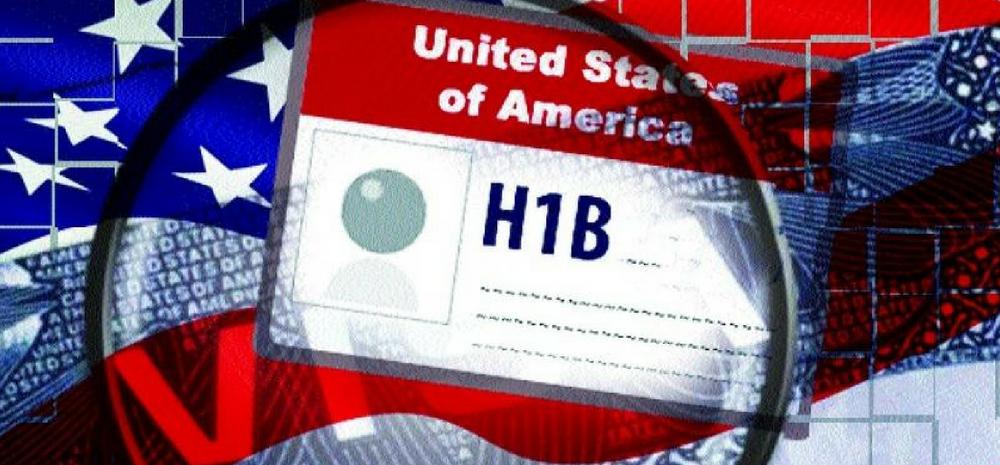USA Issued 70% Of All H1B Visas To Indians; 93% Of All H4 Work Permits Belongs To Indians!

Everyday you hear news of how it is becoming more and more difficult to enter the States. This trend is showing no signs of relief, thanks to the Trump govt. Not just this, the H-1B rejection rates for Indian companies are in serious trouble too.
Not only have the Trump govt been partial towards American companies over Indian IT firms, a new study has revealed that the denial rate of H-1B visas have touched 24% in the third quarter of the current fiscal year, from 6% in FY2015. The rejection rate is recorded highest among the major Indian IT companies.
Recent data has brought to our notice that about 23% of new petitions seeking H1-B visas for the US were denied in the 2019 fiscal year.
H-1B Visa Denials Show No Improvement
The H-1B visa is a non-immigrant visa that allows companies in the United States to temporarily employ foreign workers in occupations that require the application of a body of highly specialized knowledge and a bachelor’s degree or higher in the specific speciality, or its equivalent.
The denial rates for H-1B petitions have increased significantly. For ‘continuing employment’, there was a 12% rise in declination of H-1B petitions, which was 4 times more as compared to FY2015, when the denial rate was only 3%.
According to H-1B petition statistics of the USCIS, 84.8% of the total H-1B petitions processed and completed in Fiscal Year 2019 were approved, as against 95.7% of the total in Fiscal Year 2015.
Now, as per the Minister of State for External Affairs V Muraleedharan, about 23% of new petitions seeking H1-B visas for the US have been denied in the 2019 fiscal year. A total of 116,031 new H-1B petitions were processed and completed in Fiscal Year 2019, out of which 27,707 petitions were denied.
Indian nationals accounted for about 93% of all Employment Authorization Document issued to H-4 visa holding spouses of H-1B beneficiaries as per statistics available till December 2017.
Global Companies are Concerned Too
It turns out that it is not just Indian companies that are worried about the way they are operating in the States. There is concern across the global IT industry operating in the US over approval rates for H-1B petitions, higher rate of rejection among IT service-focused companies and cost implications of higher scrutiny and additional requests for evidence.
Further, instead of denying petitions, USCIS issued Requests for Evidence (RFEs) for many cases. USCIS data up to September 30, 2019 had shown that RFEs were asked for in 40.2% of cases as compared to just 22.3% in 2015 and 38% last year.
The approval rates following RFEs too, have fallen significantly from 83.2% in 2015 to 65.4% in 2019.
Using a RFE, the USCIS asks for further evidence to ascertain if the employee requesting for an extension of their H-1B is in a specialty occupation, to know where the employer will be working during the tenure of their visa and to ensure that the employee is indeed working for the employer sponsoring their visa.
US is Losing Skilled Employees
Until 2004, the cap of H1B visa was 195,000. This number has now been limited to an adjusted cap of 85,000. In 2019, 190,098 H-1B petitions were filed and only 85k visas were capped. The white paper also said that the number of Indians sending their GMAT scores fell to 45% in 2018 from 57% in testing year 2014.
In 2019, the US saw a 13.7% decline in international business school applications, even as Canada and Europe recorded an increase. The growth pace in the number of Indian students studying in US has slowed, at 5.4% in 2018 over 12.3% the previous year.
In other words, every Indian is almost reconsidering going to the US for job or studies, as a large number of technology professionals on H-1B visas in the US are Indians.
Canada and other European countries are becoming the go-to destination for skilled Indian IT workers and students wanting to pursue higher studies. This has now started to show affect on the market factors of the US. It has been found that the the US is not producing enough people with the skills to fill them.

Comments are closed, but trackbacks and pingbacks are open.